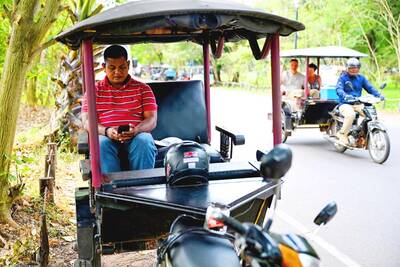Repeated abuses allegedly suffered by three British prisoners at the hands of US interrogators and guards in the Guantanamo Bay detention camp in Cuba could amount to war crimes, the Red Cross said on Wednesday.
The organization, which maintains a rigidly neutral stance in public, took the unusual step of voicing its concerns in uncompromising language after the former detainees, known as the Tipton Three, revealed that they had been beaten, shackled, photographed naked and in one incident questioned at gunpoint while in US custody.
Their vivid account of the harrowing conditions at the camp, as told to their lawyers and published for the first time in Wednesday's London-based Guardian newspaper, has reignited the debate about the treatment of prisoners and the UK government's role in their questioning and detention.
Last night the Red Cross was joined by the Medical Foundation for the Care of Victims of Torture, which argued that if the allegations were true they indicated systematic abuse, amounting to torture.
The Tipton Three were captured in Afghanistan and held at the US military base in Cuba for two years, before being released in March without charge.
One man, Rhuhel Ahmed, alleged that a British soldier had interrogated him for three hours in Afghanistan while a US colleague held a gun to his head and threatened to shoot him. The trio also said that they had repeatedly complained of abuse to British consular officials.
"Some of the abuses alleged by the detainees would indeed constitute inhuman treatment," said Florian Westphal, spokesman for the International Committee of the Red Cross in Geneva.
"But we can't comment on this publicly since this type of allegation is raised directly in discussion with the detaining authority. Inhuman treatment constitutes a grave breach of the third Geneva convention and these are often also described as war crimes," Westphal said.
The organization is allowed to visit the detainees to ensure they are treated in accordance with the Geneva conventions as long as it does not disclose information about conditions there. It can breach confidentiality in limited circumstances, most importantly, if going public would be in the best interests of the prisoners.
Sherman Carroll, spokesman for the Medical Foundation, said the report rang true in light of revelations about techniques of interrogation and torture elsewhere.

The death of a former head of China’s one-child policy has been met not by tributes, but by castigation of the abandoned policy on social media this week. State media praised Peng Peiyun (彭珮雲), former head of China’s National Family Planning Commission from 1988 to 1998, as “an outstanding leader” in her work related to women and children. The reaction on Chinese social media to Peng’s death in Beijing on Sunday, just shy of her 96th birthday, was less positive. “Those children who were lost, naked, are waiting for you over there” in the afterlife, one person posted on China’s Sina Weibo platform. China’s

‘NO COUNTRY BUMPKIN’: The judge rejected arguments that former prime minister Najib Razak was an unwitting victim, saying Najib took steps to protect his position Imprisoned former Malaysian prime minister Najib Razak was yesterday convicted, following a corruption trial tied to multibillion-dollar looting of the 1Malaysia Development Berhad (1MDB) state investment fund. The nation’s high court found Najib, 72, guilty on four counts of abuse of power and 21 charges of money laundering related to more than US$700 million channeled into his personal bank accounts from the 1MDB fund. Najib denied any wrongdoing, and maintained the funds were a political donation from Saudi Arabia and that he had been misled by rogue financiers led by businessman Low Taek Jho. Low, thought to be the scandal’s mastermind, remains

Australian Prime Minister Anthony Albanese yesterday announced plans for a national bravery award to recognize civilians and first responders who confronted “the worst of evil” during an anti-Semitic terror attack that left 15 dead and has cast a heavy shadow over the nation’s holiday season. Albanese said he plans to establish a special honors system for those who placed themselves in harm’s way to help during the attack on a beachside Hanukkah celebration, like Ahmed al-Ahmed, a Syrian-Australian Muslim who disarmed one of the assailants before being wounded himself. Sajid Akram, who was killed by police during the Dec. 14 attack, and

VISHNU VANDALS: A Cambodian official accused Thailand of destroying a statue in a disputed border area, with video showing the Hindu structure being torn down The Thai military said ceasefire talks with Cambodia, set to begin yesterday, are expected to conclude with a meeting of the countries’ defense ministers on Saturday, as the two sides seek to end weeks of deadly clashes. The talks started at 4pm in Thailand’s Chanthaburi Province, which borders Cambodia. The Thai Ministry of Defense outlined several demands to be discussed ahead of the bilateral meeting of the General Border Committee (GBC) on Saturday. If secretariat-level discussions fail to reach agreement on key technical frameworks such as troop deployments, the Thai side would not proceed with the GBC meeting or sign any agreement on